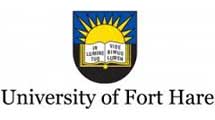[[{"type":"media","view_mode":"media_large","fid":"413686","attributes":{"class":"media-image","id":"1","style":"margin: 3px; float: left;;;","typeof":"foaf:Image"}}]]By Minister Jeff Radebe
This year marks a milestone for one of Africa’s most illustrious institutions, which over its 100 year history helped shape the minds of some of the continent’s top thinkers. The University of Fort Hare opened its doors in 1916 and will this year hold a series of events to showcase its 100-year history.
The opening event to kick-start the centenary celebrations was held in February and it coincided with the 38th anniversary of the death of Mangaliso Robert Sobukwe. Sobukwe was a student leader at the university and he challenged the institution to offer an African-Centred curriculum that would help liberate Africa from colonial rule.
Another centenary celebration will be held on 20 May and President Jacob Zuma will officiate over the ceremony. In November last year the President established an Inter-Ministerial Committee to plan and coordinate the historic national and SADC (Southern African Development Community) centenary celebration.
The May celebration is also an opportunity for the university to showcase its excellent alumni. It is the oldest historically black university in the country and attracted students from various political, religious and cultural backgrounds. African people found sanctuary in this historic institution and it served as a place where they could meet, draw strength from each other and voice concerns.
It produced graduates who later challenged the unjust system not only in South Africa, but beyond our borders. It produced teachers, social workers, nurses, leaders and administrators for the African continent. Its alumni include leaders such as the former President of Botswana Sir Seretse Khama; Prime Minister of Lesotho Ntsu Mokhehle, the President of Zimbabwe Robert Mugabe, former President of South Africa Nelson Mandela and Inkatha Freedom Party leader Dr Mangosuthu Buthelezi.
Therefore, the real celebration for such an esteemed and historic institution lies in ensuring that alumni come from all over Africa, because it was after all an African institution. The May event coincides with Africa Month to commemorate the founding of the Organisation of African Unity, or as it is known now - the Africa Union.
The year-long centenary celebration provides us with an opportunity to celebrate the fact that this historically black institution served the educational needs of black people and at the time offered the only opportunity for their higher education studies.
As we gear up for the commemoration we should be mindful that the university has over the past decade made significant progress in teaching and research. The number of graduates with PhD degrees has risen steadily since the mid-2000s and there has also been an increase in doctoral candidates in the field of science and agriculture.
It is also an opportune time for the university to reflect on how far it has gone to change its curriculum and liberate young minds as envisioned by the then student leader Sobukwe.
Delivering a speech as President of the Students’ Representative Council in 1949, Robert Sobukwe said: “…Fort Hare (University) must be to Africans what Stellenbosch (University) is to the Afrikaner. It must be the barometer of African thought.”
While the majority of our youth now have access to higher education that had been denied to many black South Africans previously, we understand that more needs to be done. We are witnessing intense debates on improving access to higher education and the quality of higher education, and it is incumbent on all of us to play our part to ensure the youth of today take their rightful place as the leaders of tomorrow.
On its part, the Department of Higher Education is implementing a number of programmes to improve the quality of post-school education. These include expanding the foundation phase to equip under-prepared students, improving accessibility for students and staff with disabilities, investing in university infrastructure and increasing the number of lecturers.
This is a great year for the university. There is no doubt that it has made huge strides and registered significant academic achievements. It should not relent, but prepare for changing times and ensure that it continues to be a beacon of hope for the whole continent. It must also continue to produce graduates with the critical skills needed by our economy, so we are able to deal a blow to the triple challenge of unemployment, inequality and poverty.
Jeff Radebe is the Minister in The Presidency





